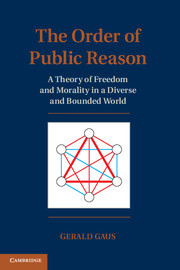Book contents
Concluding Remarks on Moral Freedom and Moral Theory
Published online by Cambridge University Press: 03 May 2011
Summary
The philosopher's stone that transforms individual goal pursuit into social restraints on goal pursuit is, like other alchemical projects, enticing but misguided. Large-scale cooperative social orders among anonymous strangers are possible because we are rule followers. Our reason did not produce social order – we did not reason ourselves into being followers of social rules. Rather, the requirements of social order shaped our reason. Although we most certainly are social creatures who have been shaped under norm-guided social life, we need not submit to the demands of the social and moral orders that confront us. To assert one's status as a free moral person is to interrogate claims to moral authority over one; to recognize others as one's moral equals is to reflect on the justifiability of one's own moral demands on them. Social rules provide order and render possible a cooperative social life. They also may oppress, discriminate, and employ social pressure to maintain outdated and unjust practices.
Social moral rules that pass the test of public justification are endorsed by the reason of all. If moral persons, each devoted to her own goals, ends, and ideals, can endorse the moral rules of the social order as genuinely morally authoritative, each can freely act on the system of social moral authority with which she is confronted. Social freedom does not consist in the freedom to act on one's goals without restraint; a free person subjects herself to moral authority endorsed by her own ends in life and her own standards of acceptable behavior.
- Type
- Chapter
- Information
- The Order of Public ReasonA Theory of Freedom and Morality in a Diverse and Bounded World, pp. 547 - 550Publisher: Cambridge University PressPrint publication year: 2010



